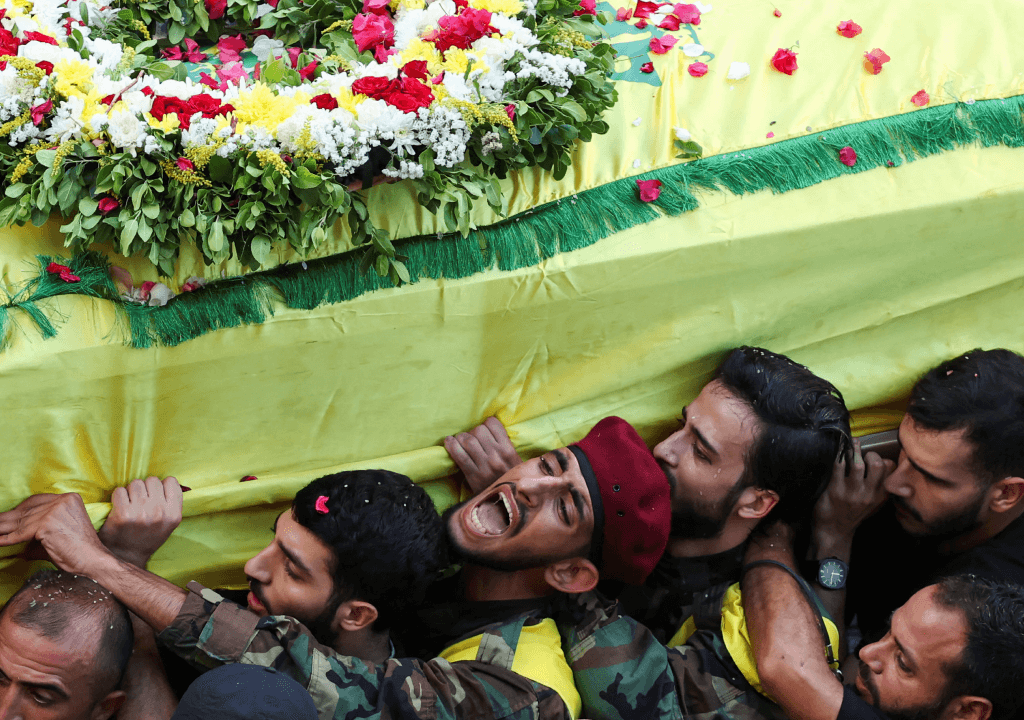Lebanon, the volatile home of Hezbollah, finds itself reeling from a bewildering series of explosions. Just a day after thousands of pagers detonated in unison across the country, a new wave of blasts from seemingly innocuous devices – walkie-talkies, laptops, radios – claimed the lives of 14 people, injuring 450 more. On Tuesday, the shocking detonations of pagers linked to Hezbollah members killed 12 and left nearly 3,000 injured, a grim spectacle that stunned not only Lebanon but the world, both in its method and its sheer scale of destruction. By Wednesday, reports of further explosions spread like wildfire across messaging apps, with disturbing images of shattered devices and smoldering buildings circulating rapidly,
As Lebanon teeters on the brink, already frayed by political dysfunction and administrative paralysis, it faces a new and bewildering crisis. The source of these devastating attacks remains shrouded in mystery, and citizens, now fearful of their own electronic devices, find themselves paralyzed in a country unable—or unwilling – to respond. While Israel has yet to officially claim responsibility, many cast accusatory glances in its direction. Civilians are increasingly caught in the crossfire, victims of what appears to be Israel’s widening focus on Hezbollah. Yet within Hezbollah itself, a disquieting confusion has surfaced, even as the group vows retribution. The ominous specter of a Hezbollah-Israel conflict hangs in the air, inching Lebanon ever closer to the precipice of war. Poor Lebanon, once again.
Information is still emerging, but multiple explosions were reported on Wednesday afternoon in Beirut’s southern suburbs and the southern city of Tyre. Social media images showed vehicles ablaze and smoke billowing from residential areas, as reports of walkie-talkies and even solar cells exploding surfaced. Shockingly, blasts were reported at funerals as well. Chaos gripped the streets, with ambulances rushing to aid the injured and panic spreading as more explosions were reported.
There is growing fear among the public about how Israel might have executed such an operation, raising concerns over the involvement of vast global supply chains, stretching from Japan and Taiwan to Europe. Some suspect these supply chains may have been infiltrated, allowing devices to be equipped with small amounts of high-powered explosives – between 1 and 3 grams. Reports suggest that Hezbollah members suspect the blasts are linked to batteries, with several removing and discarding batteries from their radios after one exploded during a funeral in Beirut. While most affected devices appeared to be communication systems, there were also reports of other objects, like solar panels, causing explosions.
Israel has neither claimed responsibility nor made any official comments regarding the explosions. However, investigations are underway by various parties, and international media has ramped up its coverage, saturating the digital sphere with the unfolding story. Both Hezbollah and the Lebanese government have pointed fingers at Israel for the attacks. Experts believe as Israel’s operations in Gaza approach their final stages, and they are moving to the next stage. Israel’s long-term strategy remains unclear, but these explosions represent a significant escalation against Hezbollah and Lebanon. Israeli Defense Minister Yoav Gallant announced on Wednesday that the army would redirect resources and forces from its nearly year long campaign in Gaza to the northern front.
The attacks dealt a heavy blow to Hezbollah, not only operationally but also in terms of psychological warfare, raising questions about the group’s standing within Lebanon. As Israel wraps up its operations in Gaza, it now faces threats primarily from the north, particularly along its borders with Lebanon and Syria. In Syria, Israel holds an advantage due to its control over key strategic areas, but Lebanon presents a more complex risk. The recent explosions seem to signal Israel’s intent to pressure both Lebanese authorities and Hezbollah, demonstrating that no one is beyond its reach.
Hezbollah has vowed revenge, but it must acknowledge that Israeli intelligence operates with a sophistication that may surpass its own capabilities. Despite this, Hezbollah faces a critical dilemma; the attacks have been a severe blow to its reputation, and failure to retaliate could undermine its very existence. As tensions rise, the Lebanese people should brace themselves for further hardship.








